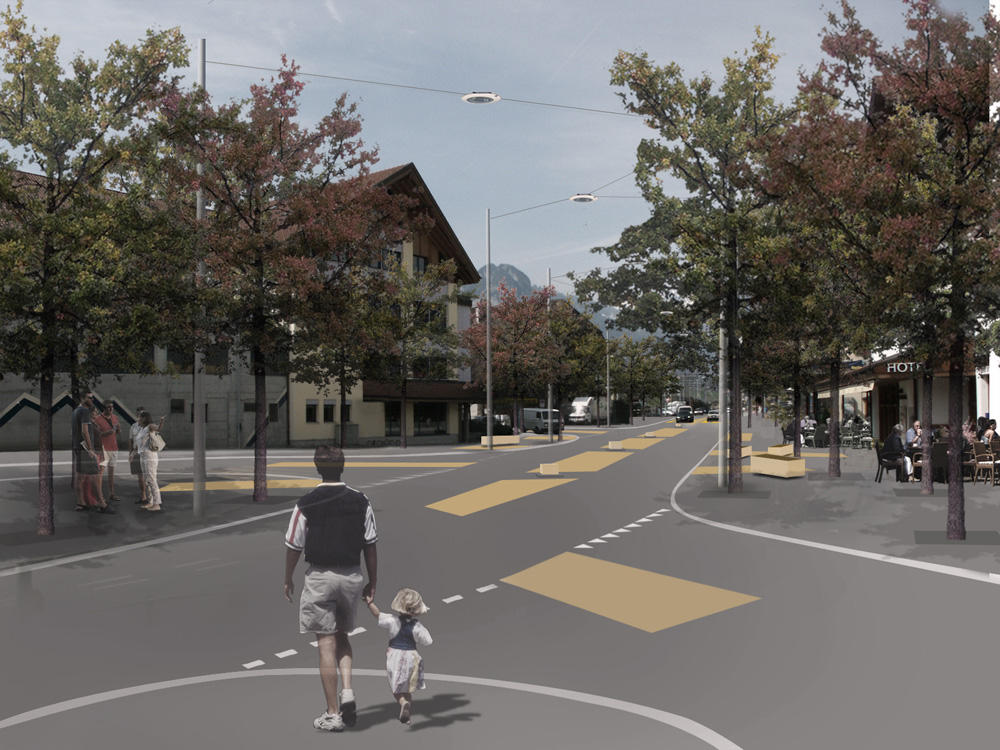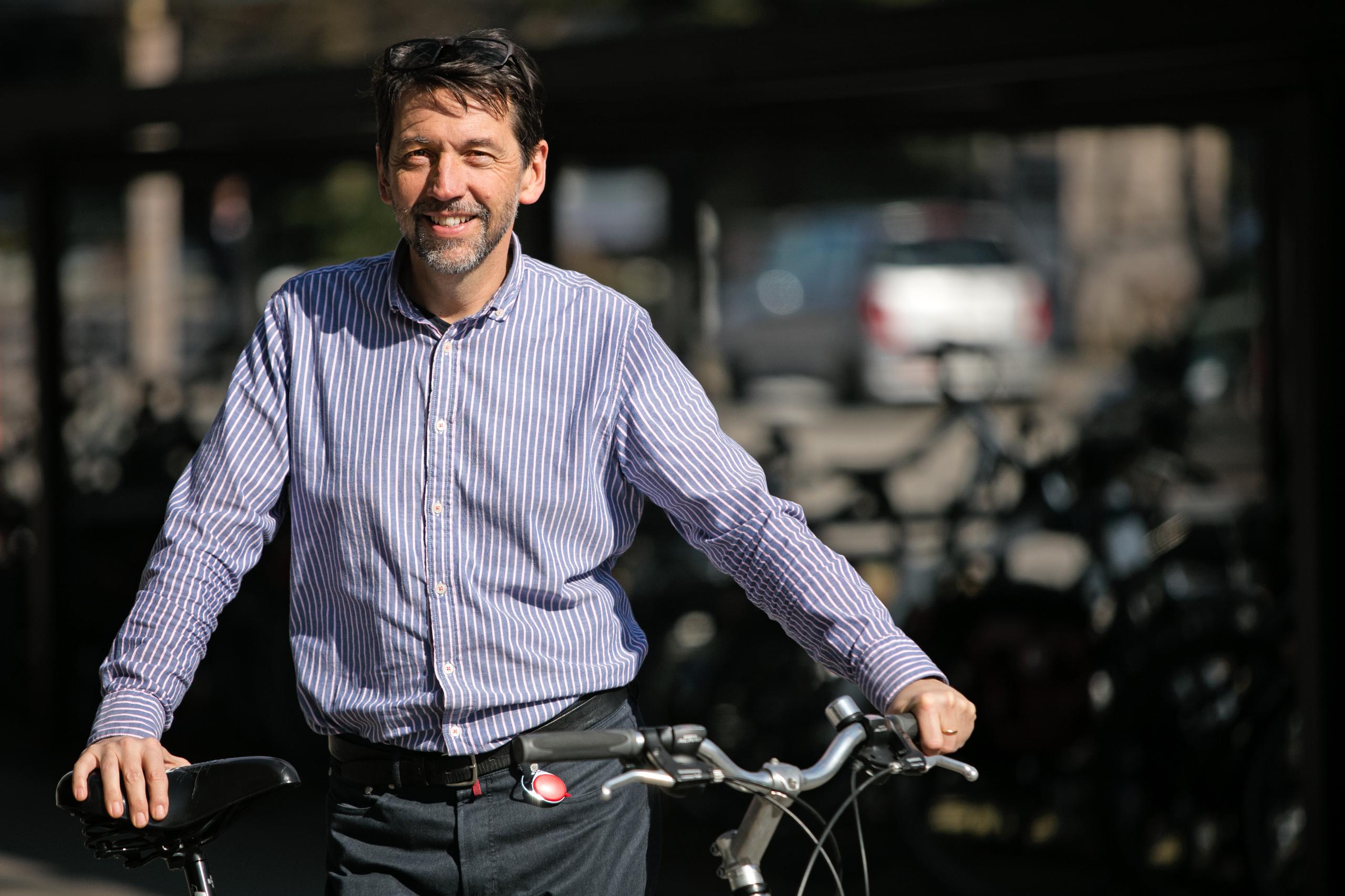Grassroots democracy: road works ahead

In the time I’ve been waiting for some new lines to be painted on the main road of my town and the sidewalks to be widened, China has extended its motorways by about 80,000 km (50,000 miles).
I know it’s not a fair comparison. This is definitely an apples and oranges kind of thing but bear with me. With an economy in overdrive, a huge workforce at its disposal and flush in cash, the Chinese government is a master at fast tracking infrastructure projects.
In contrast, my small town of Spiez located about 30 minutes from the capital, Bern, has long had all the modern infrastructure a place in developed western Europe needs: Schools, shops, roads, rail and three hospitals within a short distance.
The goal of Spiez is to keep the town an attractive community for its 12,000 residents and to do that, it needs to make small improvements from time to time.
But pushing through seemingly minor upgrades can be a very slow process if you invite everyone to have a say in the matter.
Devolving powers
Recent research by the Centre for Democracy Studies AarauExternal link found that councils in more and more towns and cities in German-speaking Switzerland like mine are devolving their powers – if only informally – to their citizens.
This is, one would think, how democracy should work. However, in Spiez we are still waiting for the first brush to be dipped into the paint, a long eight years after my local council decided something had to be done to make the town’s main thoroughfare more attractive.

If this is the result of a democratic process, I should accept it, right? In principle, yes. Unfortunately though, very few are interested in exercising their rights to participate. The political scientists from the Aarau institute uncovered a sobering, if not surprising, finding: in the overwhelming number of cases, fewer than 100 citizens actually heed the call. There were 66 concerned people in Spiez, a town with a population of 12,000.
And of these 66, the large majority were in favour of the ‘Let’s Swing’ plan to widen the sidewalks, line the road with trees, remove traffic lights and the pièce de resistance – paint broad yellow strips down the middle to indicate a go-slow zone so pedestrians can cross anywhere.
The 66
And why wouldn’t a majority of these 66 like it? After all, before the plans were presented to the public, the winning project and design had been selected by a jury in which no fewer than 25 local interest groups and lobbies were represented.
On paper, this entire participative process is admirable. In Spiez the so-called Bern Model was used which calls for the involvement of as many stakeholders as possible. The canton of Bern, to which Spiez belongs, insists this is the only way to ensure long-term solutions for road improvements that take the needs of many into account, not just the interests of a few.
But Spiez is an example where it’s the few who can turn the concept on its head to their advantage. It took three years alone for the planners to sift through and evaluate all of the feedback from the 66, and where necessary discuss each concern with them individually. Also taking into account input from the town’s various departments, the final draft was made public in 2012.
The few – 15 to be exact, including some shopkeepers – made use of their right of appeal. They’re upset that 16 of 37 parking spaces in total along the road would not be replaced.
The root of the problem
Spiez’s mayor, Franz Arnold, expressed his dismay this January, saying the improvements should go ahead since they were approved as part of “a very comprehensive, grassroots democratic process”.
Yet, this may be where the problem lies. True, opponents can always use legal means to delay or stop projects they feel go against their interests. But why is everyone invited to have their say?
This is the question the Aarau centre tried to answer in its study on new forms of citizen participation at the local level. The results show there is a greater interest in involving citizens in towns where several parties share power. Other conducive factors include communes with larger and more professional administrations, and places where the majority have close ties to their community because they live and work there.
The council in Thun, the town neighbouring Spiez, took a different approach to a similar problem; creating a mixed zone for both motorised traffic and pedestrians on a stretch of inner-city road.
Since this road did not fall under cantonal jurisdiction, the town was able to forgo a long, drawn out consultation period involving everyone. The council ordered on a trial basis the removal of the zebra stripes and painted blue waves down the centre of the busy artery. All planned and executed within a year. It’s proven its value: a study shows that traffic has not been hindered in any way, and people can cross wherever they like without having to wait. And it’s considered safer.
Certainly not Chinese in dimensions, but progress nonetheless, achieved thanks to democratically elected officials.
Next steps
The cantonal government of Bern is expected to rule this spring on the appeals filed by the opponents of the Let’s Swing concept. If it rules they are groundless, the complainants can appeal to the courts, going all the way to the federal tribunal. This could delay the Spiez project another few years.
The Bern Model
The canton of Bern is responsible for more than 2,000 km of roads, including the main thoroughfare through Spiez. Any extension or remodelling of a cantonal road must be implemented using the ‘Bern Model’, which seeks to reduce motorised traffic and calls for the active participation of citizens in the planning process.

In compliance with the JTI standards
More: SWI swissinfo.ch certified by the Journalism Trust Initiative




You can find an overview of ongoing debates with our journalists here. Please join us!
If you want to start a conversation about a topic raised in this article or want to report factual errors, email us at english@swissinfo.ch.